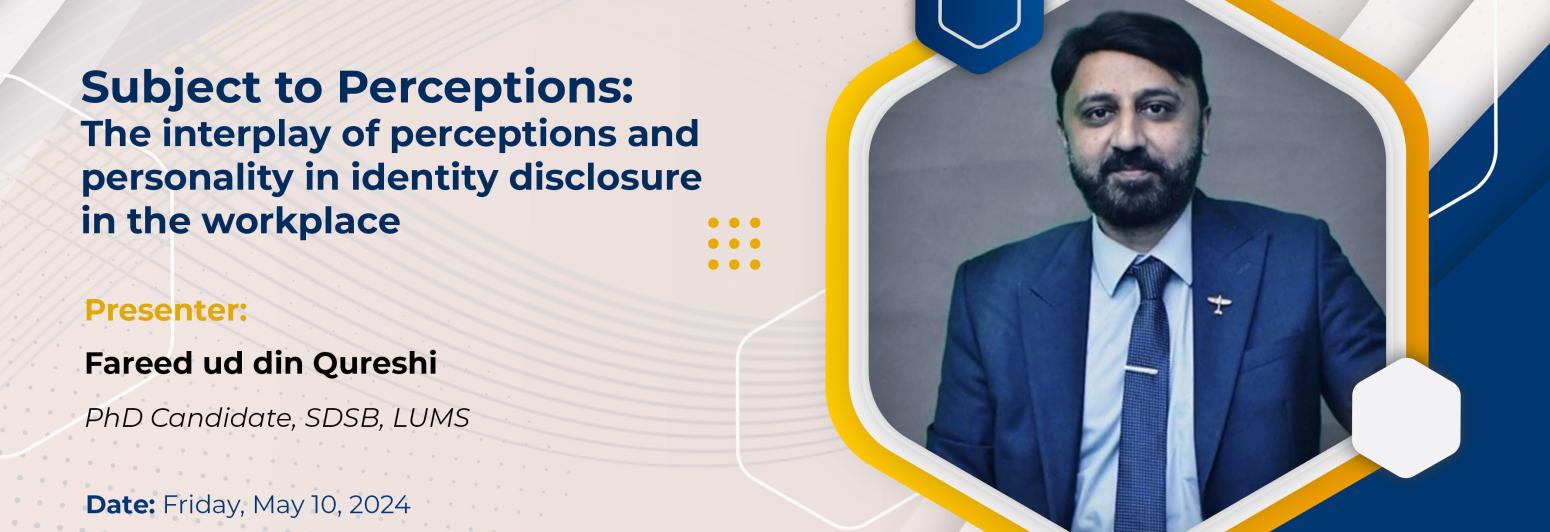
May 10, 2024
Abstract:
This paper constitutes the first part of my PhD thesis, and it explores the nuanced relationship between subjective dissimilarity perceptions and religious identity disclosure in the workplace. It investigates how an individual’s subjective dissimilarity perceptions shape decisions to disclose religious and social class identity in the workplace. Additionally, this paper explores how perceptions of psychological safety climate and the Big Five personality traits moderate the relationship between dissimilarity perceptions and the decision to disclose social class and religious identity disclosure. Using a survey in diverse Pakistani organizations, data from 324 participants were collected over three waves, controlling for demographics. This research advances the understanding of workplace identity disclosure, addressing literature gaps and enriching organizational identity management knowledge. Practical implications involve fostering psychologically safe workplace environments and interventions to manage dissimilarity perceptions in the workplace. The findings contribute to inclusive organizational policies, offering insights for both theory and practice in organizational contexts.
Speaker’s Profile:
Fareed ud din Qureshi is a PhD candidate (Organizational Behavior and Strategy) at Suleman Dawood School of Business, Lahore. In the field of Organizational Behavior, he is particularly interested in identity disclosure, the factors leading to this decision, and the positive and negative consequences that are likely to ensue. His research contributes to the diversity literature in general and identity management in the workplace in particular.
For queries about this event, please email shoaib.masud@lums.edu.pk.

